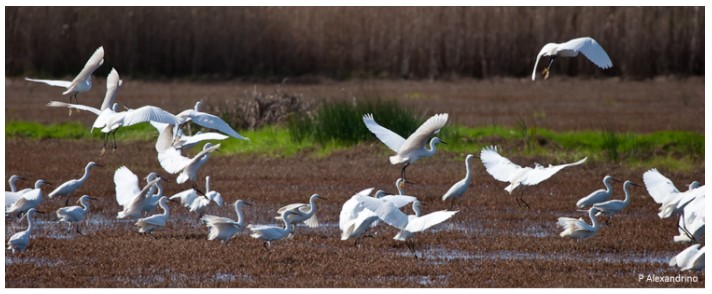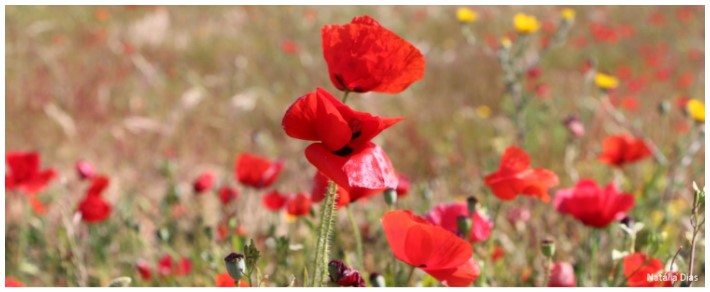CIBIO – Research Centre in Biodiversity and Genetic Resources - InBIO Associate Laboratory is an internationally recognized Research Unit in biological sciences conducting basic and applied research on the three main components of biodiversity: genes, species and ecosystems.
Since January 2011 CIBIO is part of InBIO - Research Network in Biodiversity and Evolutionary Biology, Associate Laboratory, together with CEABN – Centre for Applied Ecology "Prof. Baeta Neves", Institute of Agronomy, University of Lisbon.
CIBIO-InBIO is managed by Associação BIOPOLIS, a non-profit private institution which benefits from administrative and financial autonomy. Besides its headquarters at the University of Porto, CIBIO-InBIO has poles at the Universities of Azores, ISA - Instituto Superior de Agronomia/School of Agriculture, and DGPC – Directorate-General for Cultural Heritage/Secretary of State of Culture) in Lisbon.


Furthermore, recognizing the importance of promoting public awareness and appreciation of biodiversity, CIBIO-InBIO is fully committed to bridging the gap between research and the public, by putting forth a dynamic and broad-reaching science in society action plan. Our researchers are continuously engaged in numerous communication and outreach initiatives, namely in collaboration with well-renowned institutions, such as the Natural History and Science Museum of the University of Porto (MHNC-UP) or Fundação de SERRALVES.
CIBIO-InBIO is managed by Associação BIOPOLIS, a non-profit private institution which benefits from administrative and financial autonomy. Besides its headquarters at the University of Porto, CIBIO-InBIO has poles at the Universities of Azores, ISA - Instituto Superior de Agronomia/School of Agriculture, and DGPC – Directorate-General for Cultural Heritage/Secretary of State of Culture) in Lisbon.

In 2014, CIBIO-InBIO created the International Associated Laboratory (LIA) ‘Biodiversity and Evolution’ with a focus on biodiversity and evolutionary biology, and the first of its kind in Portugal. The LIA established a formal cooperation between the Centre National de la Recherche Scientifique (CNRS), the Université Montpellier 2 Sciences et Techniques (UM2), the Institut de Recherche pour le Développement (IRD), the École Pratique Hautes Études (EPHE), CIBIO-InBIO, the University of Porto and the Portuguese Science and Technology Foundation (FCT), built upon several well established collaborations between CIBIO-InBIO and the French research units.
In April 2019, CIBIO was awarded the TEAMING project BIOPOLIS. Funded in the scope of the Horizon 2020 Widening program the BIOPOLIS aims the upgrade of CIBIO-InBIO, to a Centre of Excellence in the areas of Environmental Biology, Ecosystem Research and Agrobiodiversity, through extensive Teaming activities with the partner University of Montpellier (UM), France, and the Porto Business School (PBS), Portugal. The main goals of the project are to pursue activities within the scope of research and innovation, knowledge transfer and address pressing societal challenges through three main strategic pillars: 1) Environment and Biodiversity assessment and Monitoring; 2) Ecosystem Function and Restoration; and 3) Agrobiodiversity, Conservation and Competitiveness of local Genetic Resources and Farming systems.
BIOPOLIS represents the largest global funding ever attributed to a research center in Portugal estimated between 130 and 150 million euros for the next 10 years.
CIBIO-InBIO fosters an international and multicultural research environment, currently hosting researchers from more than 17 countries, organized in 32 research groups.
These groups focus their activity on biodiversity, ecology and conservation, evolution, genetics and genomics and sustainability, ecosystems and the environment. They integrate experts in complementary fields, such as molecular and population genetics, phylogeography, population biology, immunogenetics, taxonomy, ecology, bioinformatics and computational biology, landscape management and conservation.
CIBIO-InBIO is the main host institution of the:
- Doctoral Programme in Biodiversity, Genetics and Evolution (BIODIV), a joint PhD programme organized in collaboration with the Universities of Porto and Lisbon and CBA - Centre for Environmental Biology, University of Lisbon; and the
- Biodiversity, Genetics and Evolution MSc Course, by the Faculty of Sciences, University of Porto.
In addition, the Centre provides various services to the community, including:
- applied research on evaluation and use of genetic resources;
- information and assessments for environmental impact studies, habitat and ecosystem monitoring and rehabilitation, and environmental planning;
- next generation sequencing; and
- scientific consulting.

Furthermore, recognizing the importance of promoting public awareness and appreciation of biodiversity, CIBIO-InBIO is fully committed to bridging the gap between research and the public, by putting forth a dynamic and broad-reaching science in society action plan. Our researchers are continuously engaged in numerous communication and outreach initiatives, namely in collaboration with well-renowned institutions, such as the Natural History and Science Museum of the University of Porto (MHNC-UP) or Fundação de SERRALVES.